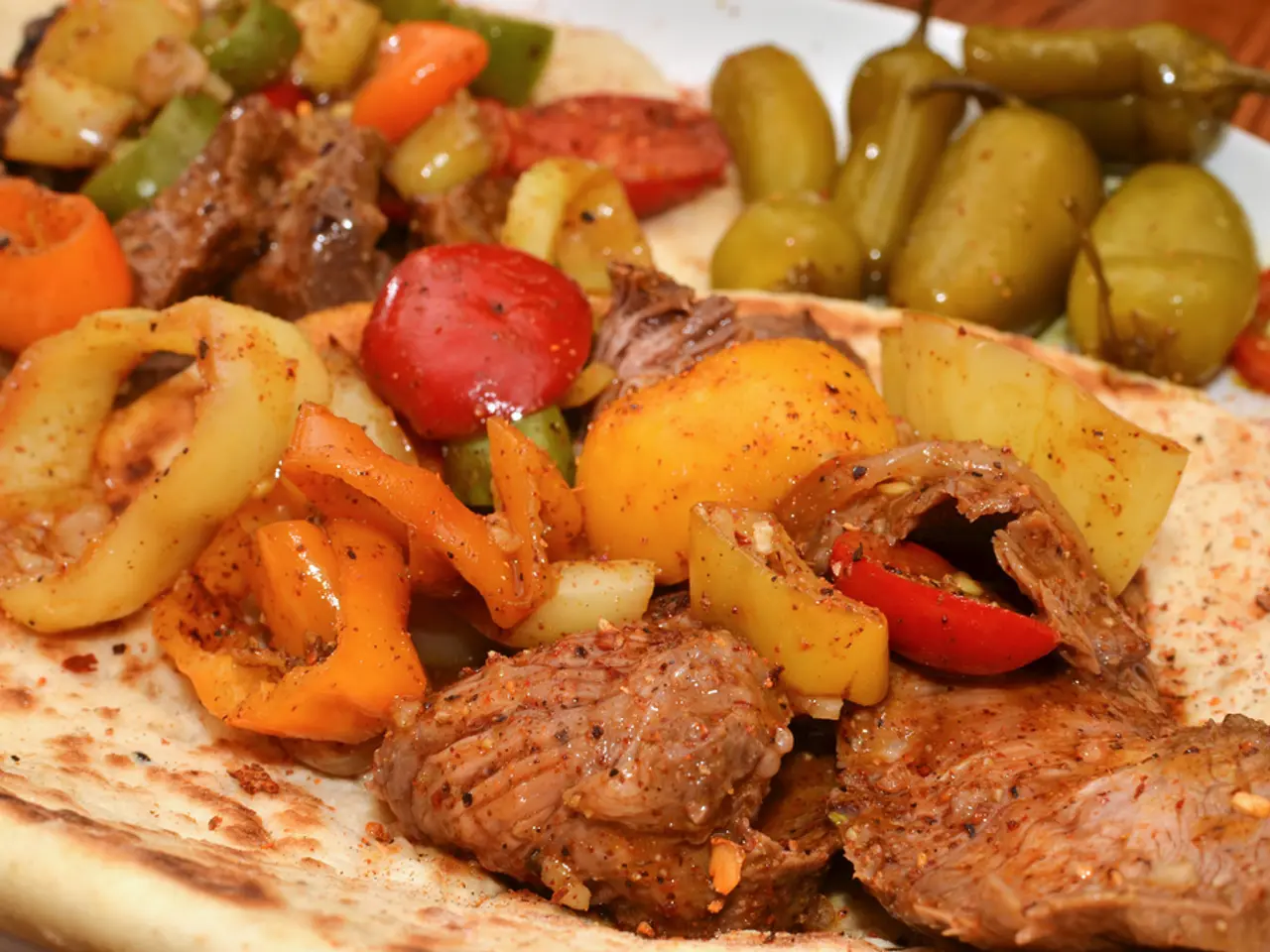Mediterranean Diet Earns Top Spot for 7 Successive Years: Unveiling Its Efficiency Factors
Here's a fun, fresh take on the Mediterranean diet:
Hey there! The Mediterranean diet's been crowned king again this year by U.S. News and World Report. It's more than just a diet - think of it as a vibrant lifestyle! Maya Feller, an expert dietitian, describes it as an "eating pattern" that can be customized according to individual needs and tastes. So, you don't have to feel restricted or deprived; it's all about nourishing your body in a tasty way.
Maggie Berghoff, a functional medicine nurse practitioner, agrees. Rather than focusing on cutting out specific food groups or counting calories, this diet revolves around consuming plenty of healthy fats, nutrient-dense plant foods, and modest alcohol intake.
But, What Exactly Is the Mediterranean Diet?
First spotted in the 1950s by Ancel Keys, a researcher from the University of Minnesota School of Public Health, the Mediterranean diet's charm lies in its long-standing popularity. Keys found that people who followed Mediterranean eating patterns had healthier cardiovascular profiles, with lower cholesterol and improved lipid markers.
However, it's essential to remember that the Mediterranean diet didn't spring up out of nowhere. It's a traditional way of eating that has been part of Mediterranean cultures for centuries. So, what are the key components?
- Seafood: Gorge on fish and poultry to get your fill of lean proteins.
- Lean Proteins: Beans, nuts, seeds, and whole grains are great alternatives to meat.
- Whole Grains: Opt for whole wheat, bulgur wheat, quinoa, barley, brown rice, and whole grain pasta over processed alternatives.
- Fresh Fruits and Vegetables: Emphasize a wide variety of fresh produce, particularly leafy greens and a rainbow of colors.
- Fermented Dairy: Go for yogurt and goat cheese to boost your gut health.
Foods to Avoid (Yes, There Are Some!)
While the Mediterranean diet encourages a wide range of delicious and nutritious foods, it's essential to remember that moderation is key. Alcohol should be consumed sparingly, and if at all possible, it's best to avoid it entirely.
So, with that, let's tuck into this fascinating world of Mediterranean dining! Embrace the flavors, embrace the health benefits, and most importantly, enjoy the journey of eating well!
Enrichment Data Pow-wow:
- Fruits and Vegetables: Aim for at least one serving per meal. Emphasize a variety of fresh produce for vitamins, minerals, and antioxidants.
- Whole Grains: Choose whole grains for fiber and nutrients.
- Legumes and Beans: Include lentils, chickpeas, and other pulses for protein and fiber.
- Seafood and Lean Proteins: Incorporate fish, seafood, poultry, eggs, and cheese into your meals but in moderation. Red meat and processed meats are consumed less frequently.
- Healthy Fats: Olive oil, nuts, and seeds are essential for heart-healthy fats.
- Dairy (Moderate Amounts): Cheese and fermented dairy like yogurt offer calcium and protein but should be eaten in moderation due to fat content.
- Herbs, Spices, and Berries: These add flavor and antioxidants; enjoy berries in small servings daily.
Shopping for Mediterranean diet-friendly foods could mean focusing on fresh fruits and vegetables, whole grains, lean proteins like seafood and poultry, and healthy fats such as olive oil, nuts, and seeds. For a well-rounded style, consider incorporating legumes and beans, herbs, spices, and berries into your meals. Following this diet isn't just about nutrition – it's also about adopting a science-backed healthy-diets approach that promotes health-and-wellness by boosting gut health with fermented dairy products like yogurt and goat cheese.








